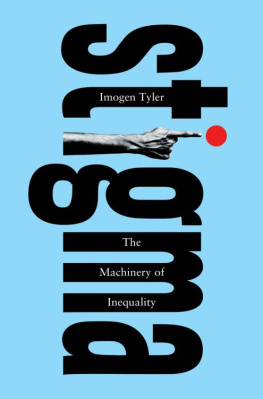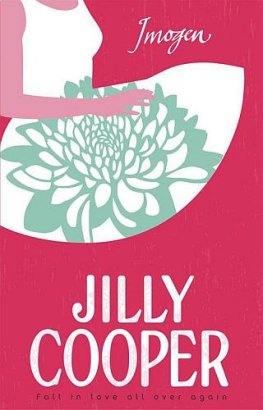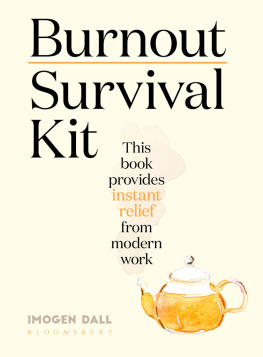Imogen Tyler - Stigma
Here you can read online Imogen Tyler - Stigma full text of the book (entire story) in english for free. Download pdf and epub, get meaning, cover and reviews about this ebook. year: 2020, publisher: Bloomsbury Publishing, genre: Politics. Description of the work, (preface) as well as reviews are available. Best literature library LitArk.com created for fans of good reading and offers a wide selection of genres:
Romance novel
Science fiction
Adventure
Detective
Science
History
Home and family
Prose
Art
Politics
Computer
Non-fiction
Religion
Business
Children
Humor
Choose a favorite category and find really read worthwhile books. Enjoy immersion in the world of imagination, feel the emotions of the characters or learn something new for yourself, make an fascinating discovery.
- Book:Stigma
- Author:
- Publisher:Bloomsbury Publishing
- Genre:
- Year:2020
- Rating:4 / 5
- Favourites:Add to favourites
- Your mark:
- 80
- 1
- 2
- 3
- 4
- 5
Stigma: summary, description and annotation
We offer to read an annotation, description, summary or preface (depends on what the author of the book "Stigma" wrote himself). If you haven't found the necessary information about the book — write in the comments, we will try to find it.
Stigma — read online for free the complete book (whole text) full work
Below is the text of the book, divided by pages. System saving the place of the last page read, allows you to conveniently read the book "Stigma" online for free, without having to search again every time where you left off. Put a bookmark, and you can go to the page where you finished reading at any time.
Font size:
Interval:
Bookmark:
Imogen Tyler is a Professor of Sociology at Lancaster University and a Fellow of the Academy of Social Science. A teacher, writer and social activist, she is a member of the Morecambe Bay Poverty Truth Commission and a trustee of the UK Poverty Truth Network. She has published widely on issues of social inequality and injustice, and her critically acclaimed book Revolting Subjects (2013) was shortlisted for the Bread and Roses Award for Radical Publishing.
By the same author
Revolting Subjects: social abjection and resistance in neoliberal Britain
The Sociology of Stigma (edited with Tom Slater)
From Stigma Power to Black Power (a graphic essay produced with the artist Charlotte Bailey)
Immigrant Protest: politics, aesthetics, and everyday dissent (edited with Katarzyna Marciniak)
Protesting Citizenship: migrant activisms (edited with Katarzyna Marciniak)
of Inequality
Imogen Tyler

Stigma, The Machinery of Inequality, was first published in 2020 by Zed Books Ltd, The Foundry, 17 Oval Way, London SE11 5RR, UK
www.zedbooks.net
Copyright Imogen Tyler 2020
The right of Imogen Tyler to be identified as the author of this work have been asserted by her in accordance with the Copyright, Designs and Patents Act, 1988
Typeset in Sabon by seagulls.net
Index: John Barker
Cover design: Steve Leard
Cover photo Shutterstock
All rights reserved. No part of this publication may be reproduced, stored in a retrieval system or transmitted in any form or by any means, electronic, mechanical, photocopying or otherwise, without the prior permission of Zed Books Ltd.
A catalogue record for this book is available from the British Library
ISBN 978-1-78699-330-4 hb
ISBN 978-1-78699-331-1 pdf
ISBN 978-1-78699-332-8 epub
ISBN 978-1-78699-333-5 mobi
This book is dedicated to the Morecambe Bay Poverty Truth Commission whose humanity and practices of social solidarity fill me with hope for the future
Ann Bidlestone being ridden through the streets of Newcastle by an officer of the city, Ralph Gardiner, Englands Grievance Discovered (1655).
Escrava Anastcia: engraving of an enslaved woman by Jacques Arago, whom he describes as wearing a Mscara de flandres, originally printed in Souvenirs dun aveugle: voyage autour du monde (Paris: H. Lebrun, 1868).
Inking refugees: refugees being numbered by Czech border police at Beclav train station, South Moravia, Czech Republic, 1 September 2015 (copyright Igor Zehl/Associated Press).
Kristallnacht shame: Jewish women in Linz, Austria are exhibited in public with a cardboard sign stating: I have been excluded from the national community (Volksgemeinschaft), during the anti-Jewish pogrom known as Kristallnacht, November 1938 (Galerie Bilderwelt/Getty Images).
Post-war shaming punishments: women being paraded in a Paris street in August 1944, barefoot, their heads shaved, and their foreheads and cheeks marked with swastikas (Serge DE SAZO/Gamma-Rapho via Getty Images).
I stole from Walmart: found photograph of a woman undertaking a shaming punishment in the US in 2007.
Thats how the Englishman colonises (So kolonisiert der Englnder): cartoon from a series of four on Colonial power by Thomas Theodor Heine, published in the German satirical magazine Simplicissimus, 3 May 1904.
Stigma machine, still from an animated Gif made by Tom Morris, 2018 (copyright Tom Morris and Imogen Tyler).
The mantle of liberalism has been discarded and the most disgusting despotism in all its nakedness is disclosed to the eyes of the whole world. It is a truth which teaches us to recognize the emptiness of our patriotism and the abnormity of our state system, and makes us hide our faces in shame. You look at me with a smile and ask: What is gained by that? No revolution is made out of shame. I reply: Shame is already a revolution of a kind. Shame is a kind of anger which is turned inward. And if a whole nation really experienced a sense of shame, it would be like a lion, crouching ready to spring.
Letter from Karl Marx to Arnold Ruge, March 1843
Stigma, the machinery of inequality
Stigma, noun. Figurative. A mark of disgrace or infamy; a sign of severe censure or condemnation, regarded as impressed on a person or thing; a brand.
Oxford English Dictionary
Every news bulletin seemed to be calling me scrounger, fraud, cheat or scum. I began self-harming, carving the words failure, freak and waste of space into my arms, legs and stomach.
Stephanie, 2019
March 2019. I am sitting with my friend Stephanie in the corner of a bar in Lancaster, the small city in North West England where I live and work.you, the readers of this book. She asked to meet in this bar because her wounds are raw and she feels a public setting will allow her to retain some composure, some dignity, while she speaks. So here we are, two middle-aged women drinking coffee in a city centre bar; late afternoon sunlight streams in from the window behind the table where we sit, casting shadows over Stephanies face, as she explains how she reached a point where she began carving stigma words into her arms, stomach, thighs with a razor blade.
The only way I can describe it, she says, is if you watch a washing machine go through its cycle, you have worries and then they calm down, more worries, then they calm down. Then the machine goes into the spin cycle, and you get to that point when it feel like its not going to stop, and the only way to get that out is to attack yourself because there is nobody else left. You have to cut that spin cycle. Its as harsh as pulling the plug. Thats what you are doing, but it only works for a little while for seconds then you feel even more shame for having done it.
The story Stephanie tells me begins over a decade ago, when her mum was diagnosed with terminal cancer, the same day her husband told her that he was leaving. Stephanie and her daughter, Isla, moved into her mums house so she could care for her. After her mum died, Stephanie got a temporary job as a teaching assistant and started to build a better life. Not long afterwards, she had a serious accident at work which left her immobilised and in chronic pain. A cycle of medical interventions and operations began, which finally culminated in a knee replacement. When she was back on her feet, Stephanie secured a new teaching post, but then Isla became seriously ill and she had to take time off work to care for her. Stephanies employer lost patience with the periods of parental leave, and she was forced to quit her job.
There is a familiar story here, about womens unpaid labour, the care they provide for elderly relatives and children, and how this care work can make it difficult, sometimes impossible, to sustain waged work. During these years of difficult, if ordinary, life events, Stephanie sold her home at a loss to prevent repossession. Then austerity cuts to school budgets meant that the teaching supply work she had been getting by on dried up. Before long she had sold everything of value she owned.
The shame, Stephanie says, is building throughout these years: Every time the card was declined when I was shopping. Id be standing there with 6 of shopping but it wouldnt go through and everybody in the queue is you know every little thing that happens piles on more stigma and shame. Stephanie was really struggling now to keep a roof over her head. She was increasingly relying on charitable foodbanks to survive. In desperation, she took out a high interest payday loan and a rapid spiral into debt followed. Before long, she says, We started getting letters to evict us. The dry mouth each time the phone rings. Her heart beating faster in her chest each time a letter drops on the door mat. The rush of anxiety that accompanies every unexpected knock at the door. Stephanie couldnt see a way out of her situation, so she sought advice and was told she should qualify for unemployment benefit and housing benefit. She applied for the relief to which she was entitled, during the exact period when the British governments austerity programme of welfare reform was beginning.
Font size:
Interval:
Bookmark:
Similar books «Stigma»
Look at similar books to Stigma. We have selected literature similar in name and meaning in the hope of providing readers with more options to find new, interesting, not yet read works.
Discussion, reviews of the book Stigma and just readers' own opinions. Leave your comments, write what you think about the work, its meaning or the main characters. Specify what exactly you liked and what you didn't like, and why you think so.









